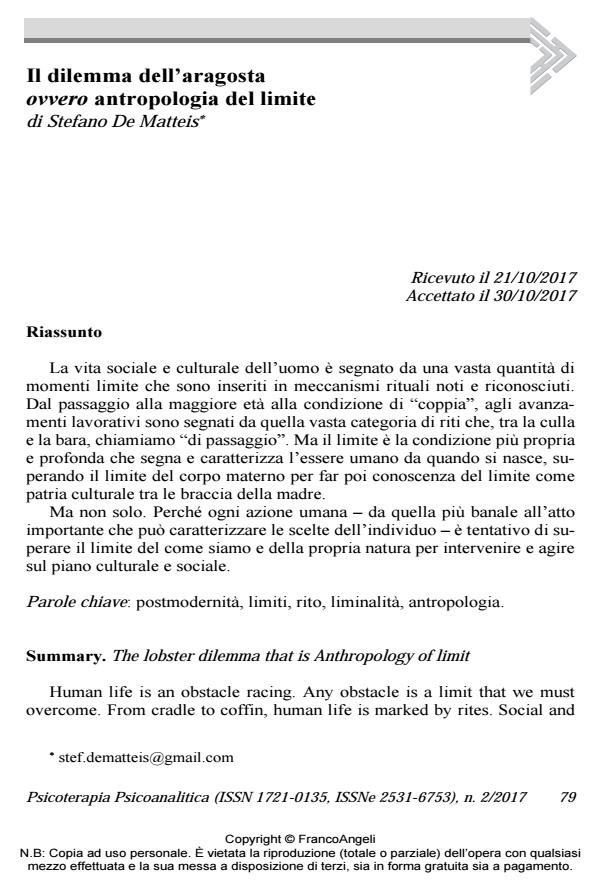The lobster dilemma that is Anthropology of limit
Journal title PSICOTERAPIA PSICOANALITICA
Author/s Stefano De Matteis
Publishing Year 2017 Issue 2017/2
Language Italian Pages 18 P. 79-96 File size 227 KB
DOI 10.3280/PSP2017-002006
DOI is like a bar code for intellectual property: to have more infomation
click here
Below, you can see the article first page
If you want to buy this article in PDF format, you can do it, following the instructions to buy download credits

FrancoAngeli is member of Publishers International Linking Association, Inc (PILA), a not-for-profit association which run the CrossRef service enabling links to and from online scholarly content.
Human life is an obstacle racing. Any obstacle is a limit that we must overcome. From cradle to coffin, human life is marked by rites. Social and cultural rites which allow us to overcome obstacles and limitations - beginning with structured and socially organized ones (transition to adulthood, and marriage, for example; or an advancement at work...). But the concept of limit has also a deeper meaning for mankind. We come into the world by going beyond the limit of the maternal body. Immediately afterwards, the limit represented by the mother’s skin allows us to know our first cultural home. From here on, every action we accomplish is an attempt to overcome the nature and the finiteness of the human being.
Keywords: Postmodernity, limits, rite, liminalism, anthropology.
Stefano De Matteis, Il dilemma dell’aragosta ovvero antropologia del limite in "PSICOTERAPIA PSICOANALITICA" 2/2017, pp 79-96, DOI: 10.3280/PSP2017-002006